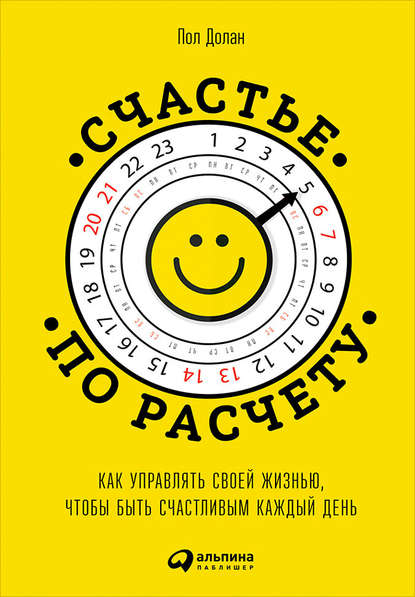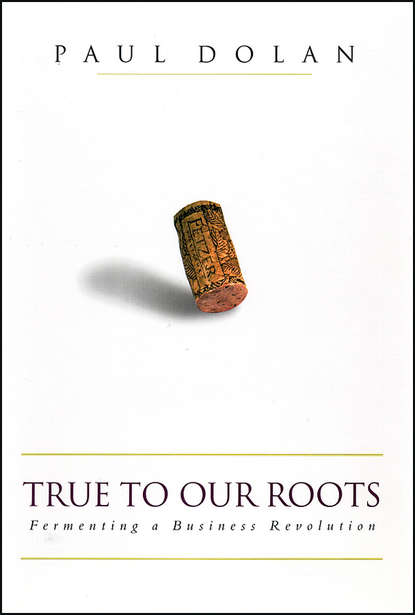
Полная версия
Счастье по расчету. Как управлять своей жизнью, чтобы быть счастливым каждый день
Принцип ПУС и время
День за днем и каждое мгновение вы чувствуете удовольствие, смысл, огорчение и бессмысленность. Вы становитесь счастливее, когда испытываете больше положительных чувств – и когда испытываете их дольше. Таким образом, счастье в конечном счете связано с тем, как долго действует принцип удовольствия и смысла.
Время – поистине дефицитный ресурс. Вы можете попросить, взять взаймы или украсть деньги, но потраченная минута уже прошла навсегда, и ее никак не вернуть. Каждый день у вас в распоряжении есть «банковский» счет, в котором 1440 минут. Каждый день этот счет снова и снова обнуляется, причем без каких-либо заимствований или сбережений. Говоря прямо и, возможно, довольно жестко, вы с каждым днем приближаетесь к смерти. Удивительно, как немного исследователей размышляют о счастье с точки зрения использования времени. Но дефицит времени означает, что любое значимое определение и мера счастья должны учитывать не только интенсивность полученных вами ощущений удовольствия и смысла, но еще и их продолжительность.
Конец ознакомительного фрагмента.
Текст предоставлен ООО «ЛитРес».
Прочитайте эту книгу целиком, купив полную легальную версию на ЛитРес.
Безопасно оплатить книгу можно банковской картой Visa, MasterCard, Maestro, со счета мобильного телефона, с платежного терминала, в салоне МТС или Связной, через PayPal, WebMoney, Яндекс.Деньги, QIWI Кошелек, бонусными картами или другим удобным Вам способом.
Комментарии
1
Gordon N. Stuttering: incidence and causes. Developmental Medicine & Child Neurology 2002; 44: 278–82.
2
Peters M.L., Sorbi M.J., Kruise D.A., Kerssens J.J., Verhaak P.F., Bensing J.M. Electronic diary assessment of pain, disability and psychological adaptation in patients differing in duration of pain. Pain 2000; 84: 181–92.
3
James W. Does consciousness exist In: The William James reader: vol. 1. Wilder Publications, 1898.
4
Currie J., Vigna S.D., Moretti E., Pathania V. The effect of fast food restaurants on obesity and weight gain. American Economic Journal: Economic Policy 2010; 2: 32–63.
5
Mazar N., Amir O., Ariely D. The dishonesty of honest people: a theory of self-concept maintenance. Journal of Marketing Research 2008; 45: 633–44.
6
Kahneman D., Riis J. Living, and thinking about it: two perspectives on life. Science of Well-Being 2005: 285–304.
7
Clark A.E. What really matters in a job? Hedonic measurement using quit data. Labour Economics 2001; 8: 223–42; Hirschberger G., Srivastava S., Marsh P., Cowan C.P., Cowan P.A. Attachment, marital satisfaction, and divorce during the first fifteen years of parenthood. Personal Relationships 2009; 16: 401–20.
8
Feldman F. Pleasure and the good life: concerning the nature, varieties, and plausibility of hedonism. Oxford University Press, 2004; Haybron D.M. The pursuit of unhappiness: the elusive psychology of well-being. Oxford University Press, 2008.
9
Vittersø J., Oelmann H.I., Wang A.L. Life satisfaction is not a balanced estimator of the good life: evidence from reaction time measures and self-reported emotions. Journal of Happiness Studies 2009; 10: 1–17.
10
Deaton A. The financial crisis and the well-being of Americans: 2011 OEP Hicks Lecture. Oxford Economic Papers 2011; 64: 1–26.
11
Schwarz N., Strack F., Mai H.P. Assimilation and contrast effects in part-whole question sequences: a conversational logic analysis. Public Opinion Quarterly 1991; 55: 3–23.
12
Watson D., Tellegen A. Toward a consensual structure of mood. Psychological Bulletin 1985; 98: 219–35.
13
Kahneman D., Deaton A. High income improves evaluation of life but not emotional well-being. Proceedings of the National Academy of Sciences 2010; 107: 16489–93.
14
Bentham J. An introduction to the principles of morals and legislation. Oxford University Press, 1907.
15
Watson D., Tellegen A. Toward a consensual structure of mood. Psychological Bulletin 1985; 98: 219–35.
16
Mauss I., Wilhelm F., Gross J. Is there less to social anxiety than meets the eye? Emotion experience, expression, and bodily responding. Cognition & Emotion 2004; 18: 631–42.
17
Oliver M.B., Hartmann T. Exploring the role of meaningful experiences in users’ appreciation of good movies. Projections 2010; 4: 128–50.
18
Ryff C.D. Psychological well-being in adult life. Current Directions in Psychological Science 1995; 4: 99–104.
19
Nelson S.K., Kushlev K., English T., Dunn E.W., Lyubomirsky S. In defense of parenthood: children are associated with more joy than misery. Psychological Science 2013; 24: 3–10.
20
Dolan P., Metcalfe R. Comparing measures of subjective well-being and views about the role they should play in policy. Office for National Statistics, 2011.
21
Vitaglione G.D., Barnett M.A. Assessing a new dimension of empathy: empathic anger as a predictor of helping and punishing desires. Motivation and Emotion 2003; 27: 301–25; Harmon-Jones E., Harmon-Jones C., Price T.F. What is approach motivation? Emotion Review 2013; 5: 291–95.
22
Hopfensitz A., Reuben E. The importance of emotions for the effectiveness of social punishment. Economic Journal 2009; 119: 1534–59.
23
Hansen T. Parenthood and happiness: a review of folk theories versus empirical evidence. Social Indicators Research 2012; 108: 29–64.
24
Kirchgessner M., Vlaev I., Rutledge R., Dolan P., Sharot T. Happiness in action: using measures of pleasure and purpose to predict choice. Under review, 2013.





